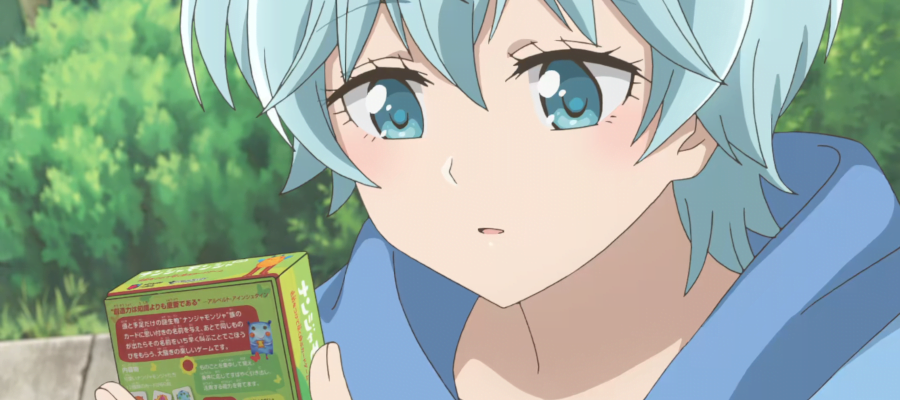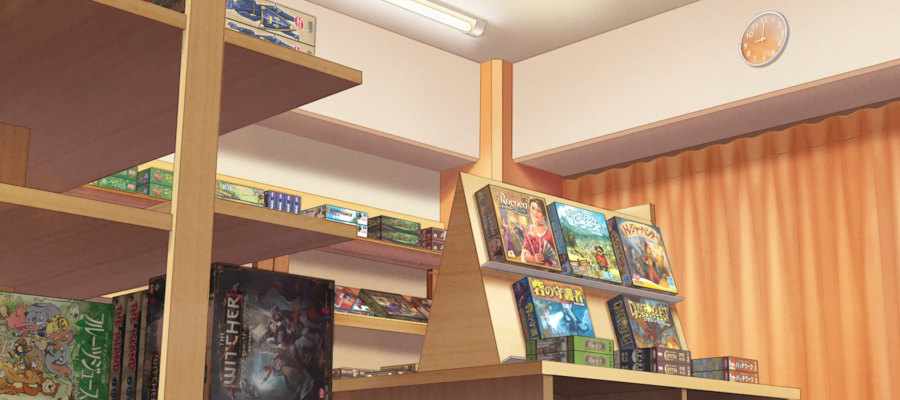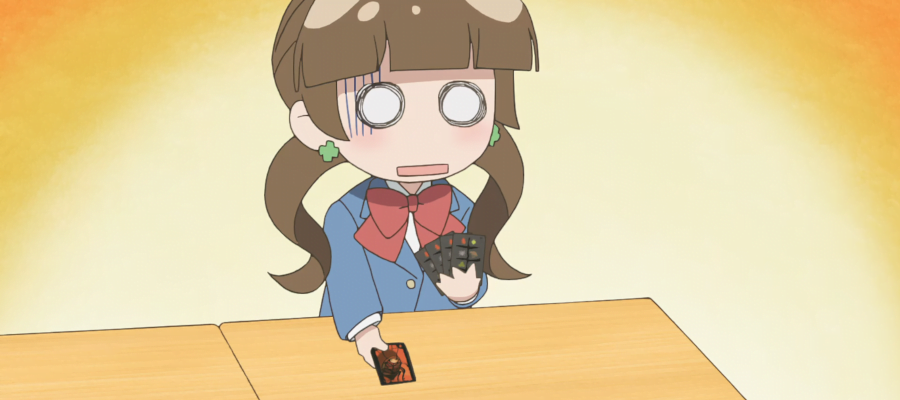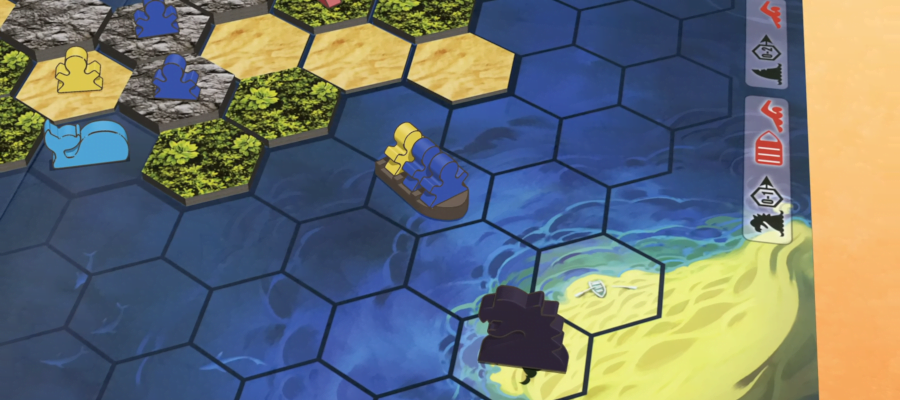Hey this is a blog where I tell you stories about games so what if I told you about a story that tells you stories about games? Well, would you believe there’s an entire anime in the Cute Girls Doing Cute Things genre that’s just… about games?
No no no – not videogames. Nor making videogames. Not any of those anime about MMORPGs. Not even the ones that are tie-ins to games like the Atelier or Persona or Legend of Mana anime. I mean an anime about board games. Yeah, I found one of those!
It’s really mid! And I love it!
Afterschool Dice Club is an anime so tepid in its overall hook that it sounds like a setup to a twist. It’s an anime about a small group of friends, in high school, who start a board game club. They play board games with one another. They have names and individual experiences and anxieties about being the age they are in the place they are, but none of them are remarkable, or challenging standouts that you’d be surprised to hear about. One of them has transferred mid-semester. One of them is afraid of being left behind. One of them is maybe crushing on a boy. This anime is some mild tea, which means the next thing to ask, is, okay, if that’s what happens in it, what’s it about?
When an anime is ‘about’ something it’s often actually about one specific author’s specifically narrow vision of what that thing is. Sometimes this works out to the benefit of the work – Beck is an anime that benefits immensely from being about the music that its author thinks of as important, because even if that’s a narrow collection of artworks to build out of, that collection is still definitionally something that you need expertise to represent, and the way the manga and anime represent that demonstrates that the author is meaningfully aware of true things about the form they’re commenting on. Sometimes you’ll see an anime that wants to be ‘about’ something that doesn’t seem to understand anything about what it’s talking about.
I wouldn’t conventionally call it one of your healing anime. It’s not an anime where relationships are pre-eminent. It’s not a story where there’s long, indulgent shots of things that are meant to make you go that’s nice. It’s structured almost like a sports anime, but because it has to explain to you the sports each episode, the stakes can’t really get higher. There’s no ‘best’ or ‘drive’ in it. It’s just learning about a new thing every week.
The term I feel applies here is authenticity, and when it comes to authenticity, well, Afterschool Dice Club absolutely authentic. It’s not about board games as the author imagines them, or board games the way that lesser games are about ‘a card game’ where they have to break the rules to make tension or drama happen in the story. It’s about actual, real, commercial product board games you can go to a store and buy and play right now. In fact, if you watch the anime episode on a game, you can probably play the game. The sections of rules explainers in the anime are detailed enough that they’re clipped out on Youtube to serve as rules explainers for how to play the game, like Watch it Played was about adorable girls rather than an adorable Rodney. Sorry Rodney.
There’s a taste to the games I consider somewhat classical. There’s obviously a bias towards German games, but it’s more a sampling preference. This anime doesn’t seem to have a love for representing social or negotiated games – these are games that are sometimes criticised for being wholly isolated, where players can play the game without crossing any kind of language barrier. People place their pieces and let their gameplay do the talking for them. These are fine games – I particularly like Diamante, as an example of a really good, pure game with a tight engine that puts you very close to some decisions. I also love Cockroach Poker, a game that I have owned and never gotten to play with anyone who isn’t paying to be there, because the game is an anxiety engine.
Which is how they represent it.
A lot of what you watch anime for is to basically be advertised to. You’re tuning into something that’s using a story as a vehicle to show you things that you can then merchandise your love for. You wanna see cool characters being cool and neat mecha and amazing character moments and things that the great anime industry can then, somehow, turn into money through giving you opportunities to express your love through money. It’s not even a joke, the anime industry as I understand it is essentially trying to sell you being a fan of this anime specifically. It’s why so many anime have been trying to key into pre-existing fandoms, like light novels and the like.
I feel like the thing Afterschool Dice Club is trying to get you to get into is like, following their youtube channel for game tutorials. It’s a niche interest that feels like maybe someone who runs a board game store franchise was trying to finance it into existence. And like, surely that’s not true. Surely that financial conspiracy is nonsense, just natural paranoia bubbling away that nobody makes anime for nice reasons. Which isn’t true, lots of anime get made for nice reasons! But the people making it are nice, the people signing their cheques, those people are buttholes.
And I don’t know what they’re getting out of it.
There’s a message towards the end of the story. I’m always reluctant when I want to refer to ‘the message’ of an anime, or what a story is trying to do as opposed to what I get out of it, what my impression was, but in the case of Afterschool Dice Club there’s a very clear, very specific incident in the last episode, where the players play a communication memory game, and then explicitly use the language of that game to talk to one another about their feelings.
I talk about the idea that games are ways we can practice emotions. In Afterschool Dice Club, the story is about kids who aren’t good at talking about their feelings using games to give themselves the language to do that. That’s cool! That’s demonstrative! That might be markedly non-typical ways of learning communication methods! This may be an anime for dorks like me with macaroni soup for brains that makes us like board games and then shows ways that we can make words in that macaroni soup.



